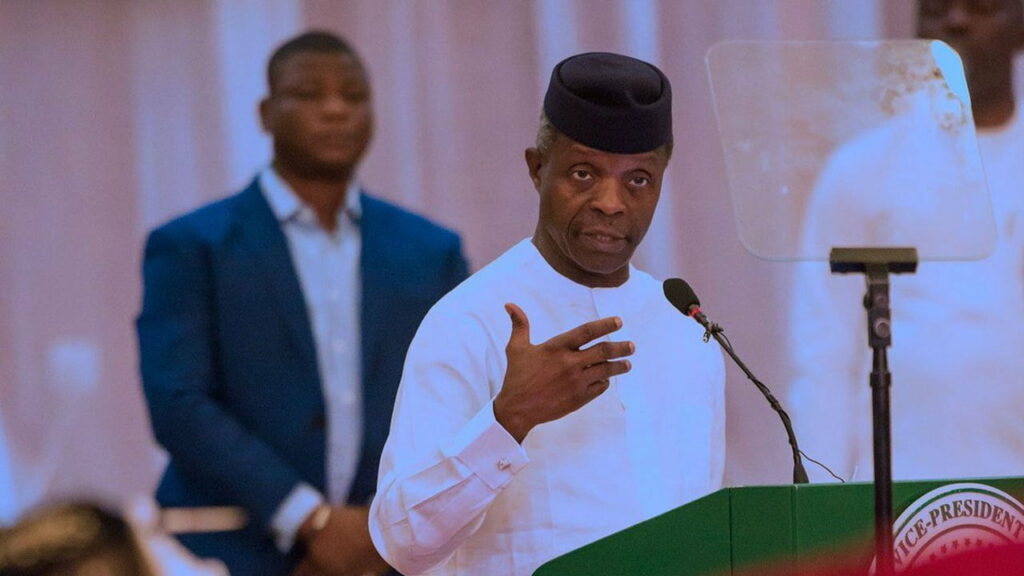Nigeria’s vice president, Yemi Osinbajo has disclosed that the federal government is investing $1 billion on three flagship projects in the country.
The projects are namely; the Lagos-Ibadan expressway, Second Niger Bridge, and Abuja-Kaduna-Zaria-Kano expressway.
This was made known by the vice president during his keynote address delivered at the 51st annual conference of the Nigerian Institution of Estate Surveyors and Valuers (NIESV) held in Abuja on Thursday.
Osinbajo, who was represented by Abubakar Aliyu, minister of state for works and housing, said the FG had been intervening in critical sectors in order to boost the economy.
“On roads, the government created the Presidential Infrastructure Development Fund, investing over a billion dollars in three flagship projects: the Lagos-lbadan Expressway, Second Niger Bridge, and Abuja-Kaduna-Zaria-Kano Expressway,” he said.
“The government also approved Executive Order 7, which essentially mobilises private investment through a tax credit scheme to encourage the private sector to invest in road construction for tax rebates.
“Similarly, the implementation of the Highway Development and Management Initiative is ongoing. This is a PPP (Public Private Partnership) programme to mobilise, at first, over a trillion naira in private investment for the development and maintenance of 1,963km of 12 roads.”
Also speaking at the event, Babatunde Fashola, minister of works and housing, said the development of critical infrastructures such as the provision and maintenance of new roads and bridges, airports, rail infrastructure, among others, had salutary impacts on the real estate sector.
Fashola was represented by Aisha Mohammed, an official of his ministry.
“It is therefore in realisation of this fact that the Federal Government has taken deliberate steps to bridge our infrastructural deficit, which is estimated to be in excess of N15 trillion,” he said.
He said the government understood that real estate development was hinged on land and was making conscious efforts with respect to the accessibility, affordability and security of land and titles.
“Between July 2018 and May 2021, the Federal Ministry of Works and Housing has processed and issued 4,628 Certificates-of-Occupancy and 2,230 consents to secondary land transactions,” Fashola added.
On his part, Okas Wike, president and chairman of council, NIESV, called for improvement in the security situation across the country, emphasising that this was having a severe negative impact on the real estate sector.
